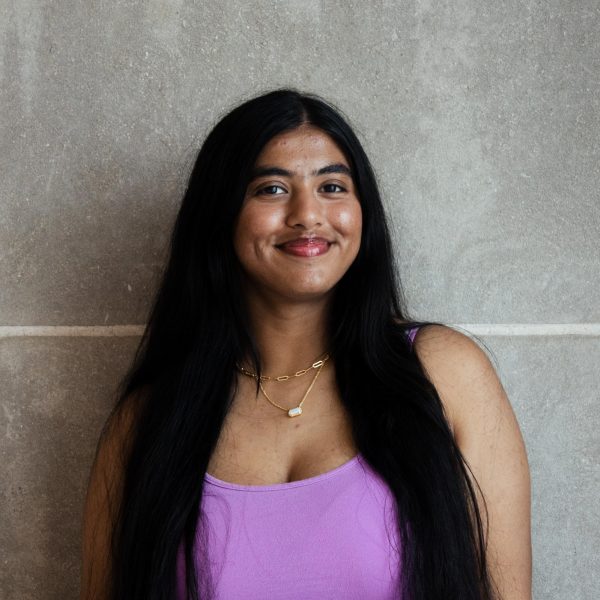
“I am the founder and CEO of Mentee, [a non-profit.].
The organization started as a face-to-face organization in Chicago and became a global organization that supports people around the world. Originally, it was focusing on immigrants and refugees that were in high school in the city. I was working with CPS and doing different kinds of mentorship, and I found that the mentorship model for folks who are disadvantaged was horrible. So I blew all that up with the [help] of some former students who shared Mentee when they went to University of Illinois. They contacted me just a little bit before covidand said, “we heard about your organization, and we know you want to go global. Could we build an application for you?”
And they did. What [this] allowed me to do [was to] create an organization that was not hierarchical. It is driven by the mentee themselves. We have essentially what you might think of as LinkedIn: a group of wonderful mentors who are specialized in all different kinds of areas [like] post secondary, professional development, personal meditation and yoga, languages, and [mentees] get the choice to choose the ones that they need to support them at any given moment of their life.
The mentees are mentees for life; it’s not a short term program. We’re in 54 countries, and it is meant to help anyone [over 18 years of age] who is disadvantaged by local and global systems now. My oldest mentee [is] 55 and someone who is also running a partner organization.It’s an ecosystem of support.
My mentees come to me from other NGOs (non governmental organizations) around the world, and I support those they’re serving. [I also support NGOs] who have their own mentorship program, but they’re always limited in duration because they rely on a grant. The programs [are around] six months or a year. [It’s] very underfunded, so it’s all blood, sweat and tears and a lot of late nights and long weekends.
We’re supporting folks who are disadvantaged in different ways by local and global systems. [For example], I’m supporting over 100 women inside of Afghanistan with providing education, mentorship and other opportunities. One [woman] was just part of our internship program. Over the summer, I built a program for MIT called Emergent emerging talent fellows, and one of them is a woman inside of Afghanistanand was able to benefit from both MIT and this internship program. Her restrictions are different from others who, for example, might be in a country in sub Saharan Africa, and they’re dealing with electrical outages or data issues. I partner in a lot of different ways with the organizations, first, support those they’re serving. But we might be with an organization that has the challenge of a community [dealing]with electricity, Wi Fi devices, and that’s the reason to have the on the ground NGO.
We can have teams of global mentors giving presentations on a topic, and the groups of mentees can come to the location that’s one way of solving [technology] issues. Another way is a mentee can record a video about their request, and once they’ve already set up a meeting or at least a relationship, their mentor can send a video back [and] they [communicate] asynchronously to help support each other.
I’ve built this program with one of my mentees who [was] my first mentee in Chicago, and she is a single woman with young children. She was going to school and working, [meaning] she couldn’t have been part of any traditional mentorship program. I wanted to build something to support her and everyone like her.
My love for psychology is one that drives my curiosity about our human experience, and it has definitely [helped] my program as we offer mental health sessions every month that are open to the public. I’m partnered with a wonderful organization that is out of southern Lebanon that just does great work. It’s a women-run organization, and so finding individuals who understand crisis, [including all of the] different forms that we can experience, and making sure [those] kinds of tools are available to my community and others is very important to me.
Many of the people who are in our community are coming without having had access to understanding mental health, or maybe mental health is taboo in their culture, and this is a way to start exposing them to certain ideas so that they can support themselves and others.
All of our lives matter, and it is important to understand what we can do to uplift others with the beautiful gifts we have in our life. We all have gifts to share, including our mentees. For me, everybody gets a seat at the table. We’re [an] inclusive environment that’s not hierarchical. My mentors are growing just as much as my mentees.”



